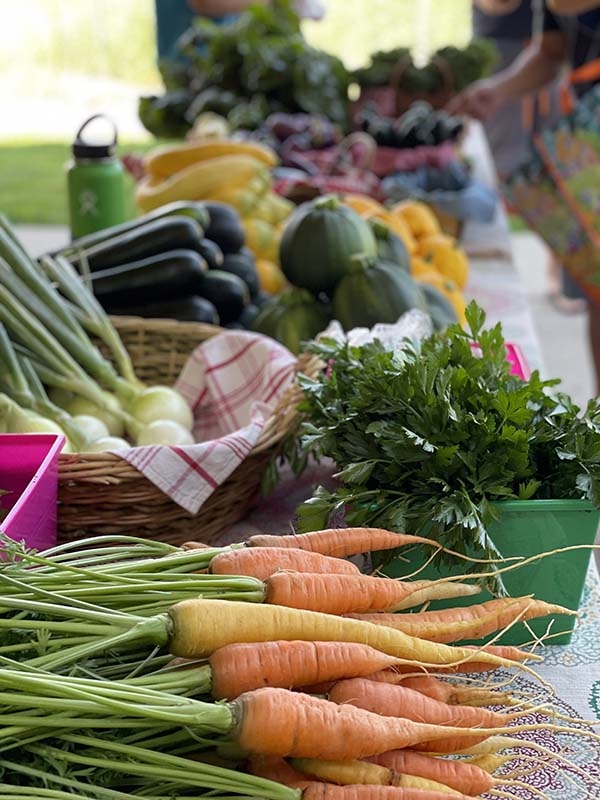Food Insecurity and Regenerative Agriculture
In 2020, 38.3 million Americans lacked the resources necessary to acquire enough food to meet their needs. At the same time, upwards of 40 percent of all food produced – equivalent to nearly 160 billion pounds – was wasted. It’s difficult to fathom that in a country where nearly half of our food is simply thrown away, anyone would lack access to a meal, yet this reality defines the state of our current food system in the United States.
The USDA defines food insecurity as, “A household-level economic and social condition of limited or uncertain access to adequate food.” While hunger is an obvious consequence, increased risk of birth defects, cognitive issues, depression and anemia are just a handful of myriad issues that can arise directly from living in a food insecure state. It’s clear that the health of our neighbors and communities as a whole relies heavily on our ability to provide access to healthy and responsibly-grown food for all.
Reaching food deserts
The question I ask myself every growing season is how can I effectively utilize the tenets of regenerative agriculture to create a more just and equitable food system; one where nutritious food is accessible to all people and grown in a way that reverses the deleterious effects of climate change?
At the urban farms located in the Denver communities of Mariposa and Sun Valley, we grow organic produce and distribute it to the community free of charge. These communities exist within food deserts; locations where healthy, unprocessed food is scarce and grocery stores are non-existent. This lack of healthy food access is a major contributing factor that leads to food insecure communities. By growing and distributing nutritious, organic and sustainably produced food to a community that would otherwise go without, we are working toward a future that emphasizes equity over exclusion, and environmental stewardship over exploitation. With that said, the work that we do must be subject to continuous critical evaluation to ensure that we continue to serve the community in the most effective and responsible ways possible.

Taking action
While this vision of a regenerative food system may sound like a utopian pipedream, it’s actually more of a necessity than an ideal. The United Nations (UN) Department of Economic and Social Affairs (DESA) confirms that utilizing agroecological methods of food production (i.e., regenerative and sustainable agriculture) is paramount in winning the fight against hunger and food insecurity. In fact, of the 17 Sustainable Development Goals (SDGs) set forth by the UN, goal two seeks to end hunger, achieve food security and improved nutrition, and promote sustainable agriculture. The inclusion of eradicating food insecurity in the UN SDGs denotes just how imperative it is to address this issue on a global scale with the utmost urgency.
Hunger and food insecurity are complex issues that are inextricably linked to agricultural production and distribution. While our current food system exacerbates these issues, we have the ability to reshape our shared food system into one that not only ends food insecurity, but one that reverses climate change as well. Achieving this feat will require a deep understanding and reexamination of our economic, social and political systems at large. There’s no doubt that deep systems change cannot come about without major action taken by governments and public and private institutions alike.
Want to help reshape our food system?
Learn more about hunger and food insecurity and engage with your elected representatives.
Support local organizations working toward building a more just and equitable food system either by volunteering or donating.
Speak with people in your community about food insecurity. Building connections and understanding the specific needs of your neighbors will help you better recognize what you can do to help.
Do what you can, when you can, where you can.
Add new comment